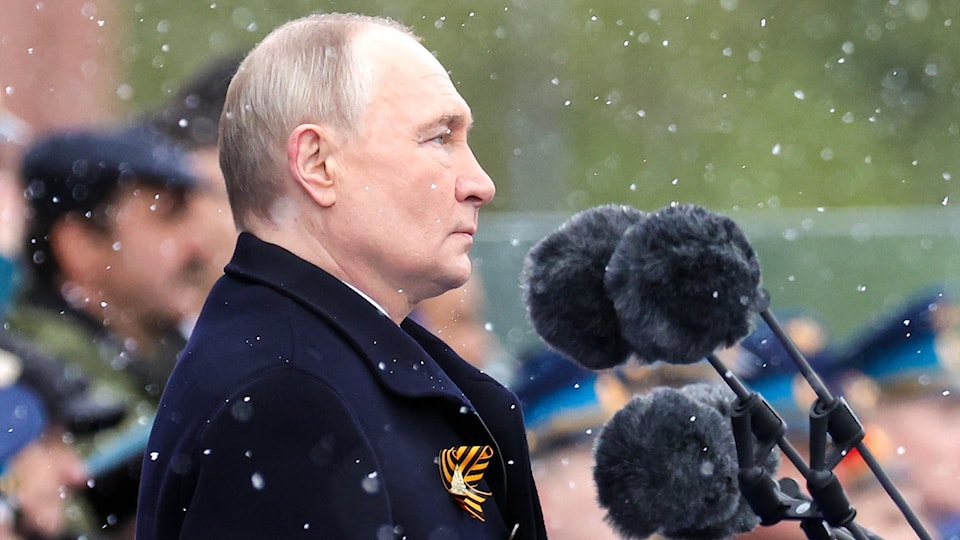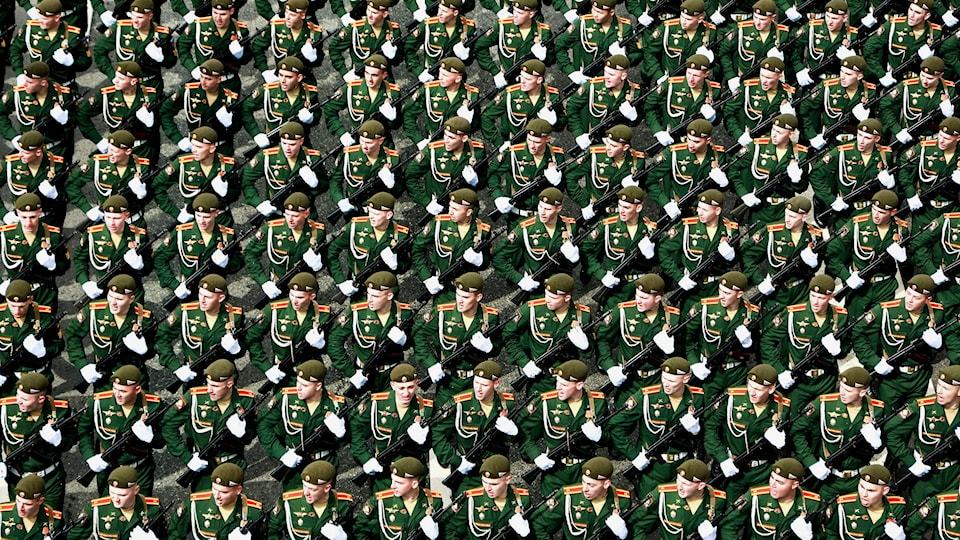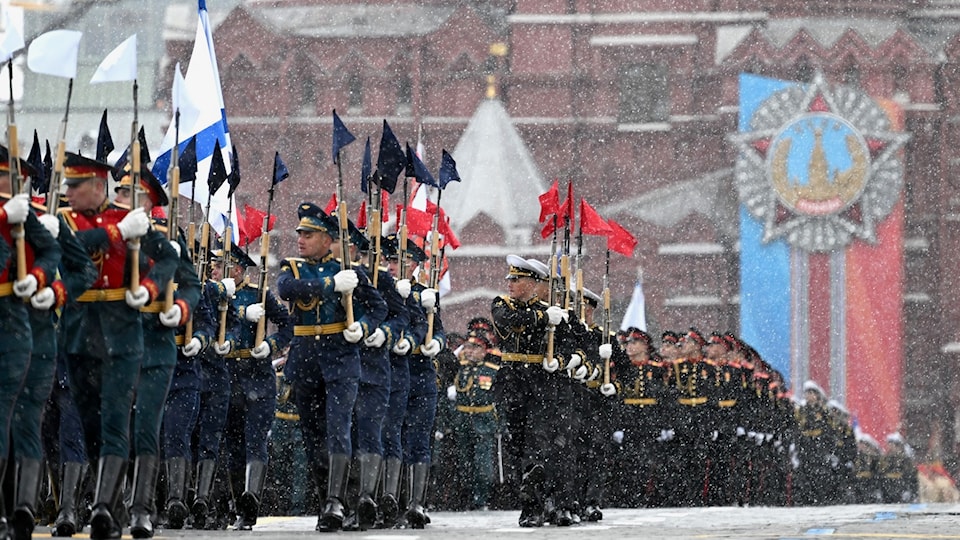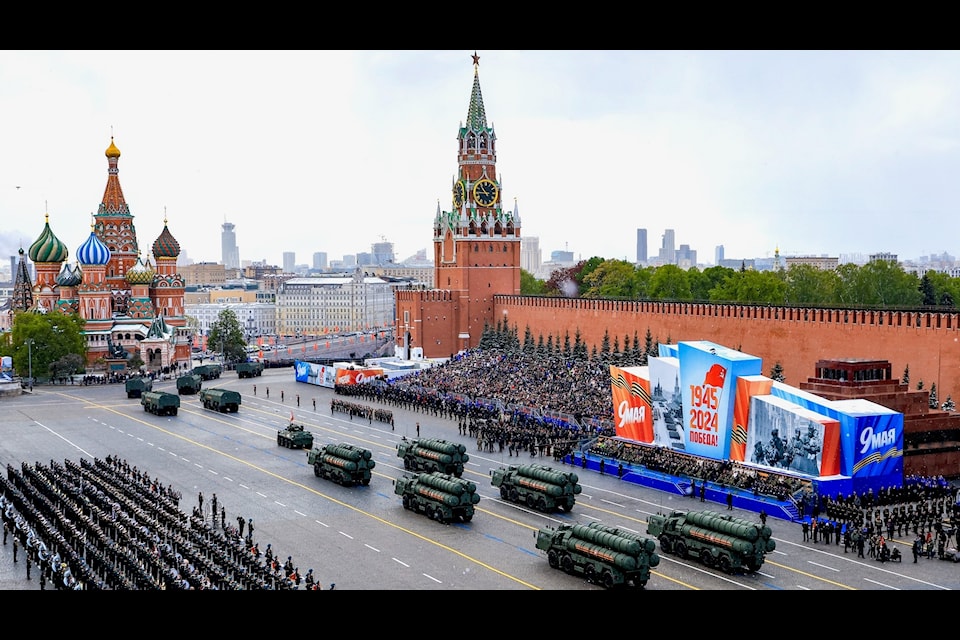Russian President Vladimir Putin, in a speech at Russia's annual Victory Day parade on May 9, honoured the Soviet soldiers who fought against Nazi Germany and warned the West against historical revanchism.
Putin, who just won his fifth six-year term as president, accused the West of historical revanchism — the return of lost territory — and "making a mockery of history" in a general policy of "Western elites to fuel regional conflicts, inter-ethnic and inter-religious strife and to contain sovereign and independent centres of global development."
"Today we see how the truth about the Second World War is being distorted to prevent those who are used to building their essentially colonial policy on hypocrisy and lies. They tear down memorials to the true fighters against Nazism and put traitors and Nazi collaborators on pedestals," he said.
Victory Day marks the anniversary of the date when Nazi Germany surrendered to Allied forces at the end of the Second World War.
In attendance were nine world leaders mainly from former Soviet republics Belarus, Kazakhstan, Kyrgyzstan, Tajikistan, Turkmenistan and Uzbekistan, as well as the leaders of Cuba, Laos and Guinea-Bissau, according to a readout from the president's office.

In a statement on the Russian Ministry of Defence’s Telegram account on May 3, Defence Minister Sergei Shoigu said more than 9,000 people and 70 pieces of equipment would take part in the parade on Red Square.
Across Russia, "about 150,000 people and (2,500) types of weapons and military equipment will be involved in the celebration of Victory Day," Shoigu said.
"Today we are honouring our fathers and grandfathers and grand-grandfathers. They defended their native land and crushed Nazism, liberated the peoples of Europe and displayed unparalleled heroism in combat and on the home front," Putin said.
He said Russia rejects the claims of states or alliances, in a reference to NATO, to exclusivity and vowed "Russia will do everything to prevent a global clash, but at the same time, we will not allow anyone to threaten us.
"Our strategic forces are always on alert," Putin said in a reference to the country's nuclear weapons.
Jack Cunningham, a history professor and program coordinator of the University of Toronto's Bill Graham Centre for Contemporary International History, said only a Russian defeat in Ukraine and perhaps regime change would restore relations between the West and Russia.
"Putin has made it relatively clear that he is intent on reestablishing Russia as a great power and on reconstituting as much of the old Soviet empire as he can," he said. "I think that's pretty much a fixed objective in his mind.
"He's not going to relinquish it. And as long as he's in office, that's going to ensure that relations with the West are at best cool," Cunningham said.
He said he hadn't seen anything to suggest that Western governments are trying to denigrate Russia's contribution to defeating Nazi Germany.

"I think this is really just for domestic consumption," Cunningham said.
"Putin's hold on power has largely derived from his being able to promote and exploit the perception that Russia is put upon, that it's being somehow denigrated by the West or exploited by the West. So this is just part of a familiar pattern," he said.
Since the conflict broke out in Ukraine, Putin has "alternated between nuclear sabre rattling and reassuring rhetoric and he's trying to strike that balance here. The fact is that while his rhetoric has sometimes been quite blood-curdling, his actions have been much more restrained," he said.
The parade began when the national flag of Russia and the Banner of Victory were carried into Red Square. The parade was led by Commander-in-Chief of the Russian Ground Forces Army General Oleg Salyukov and reviewed by Acting Defence Minister Sergei Shoigu.
The marching column on Red Square included 30 ceremonial regiments of over 9,000 service personnel, among them over 1,000 troops taking part in the special military operation, according to a Russian press readout.

The Victory Day parade ended with an aerial part with Su-30M and MiG-29 jets flown by the Russkiye Vityazi (Russian Knights) and Strizhi aerobatic teams flying over Red Square in the famous lozenge-shaped Cuban Diamond formation, followed by six Su-25 fighter jets painting the sky into the colours of the Russian flag, the readout said.
Victory in Europe Day marks the unconditional surrender by Nazi Germany to Allied forces at around 10:43 p.m. May 8, 1945, in Berlin, but because of time zones, Russia celebrates Victory Day on May 9.




